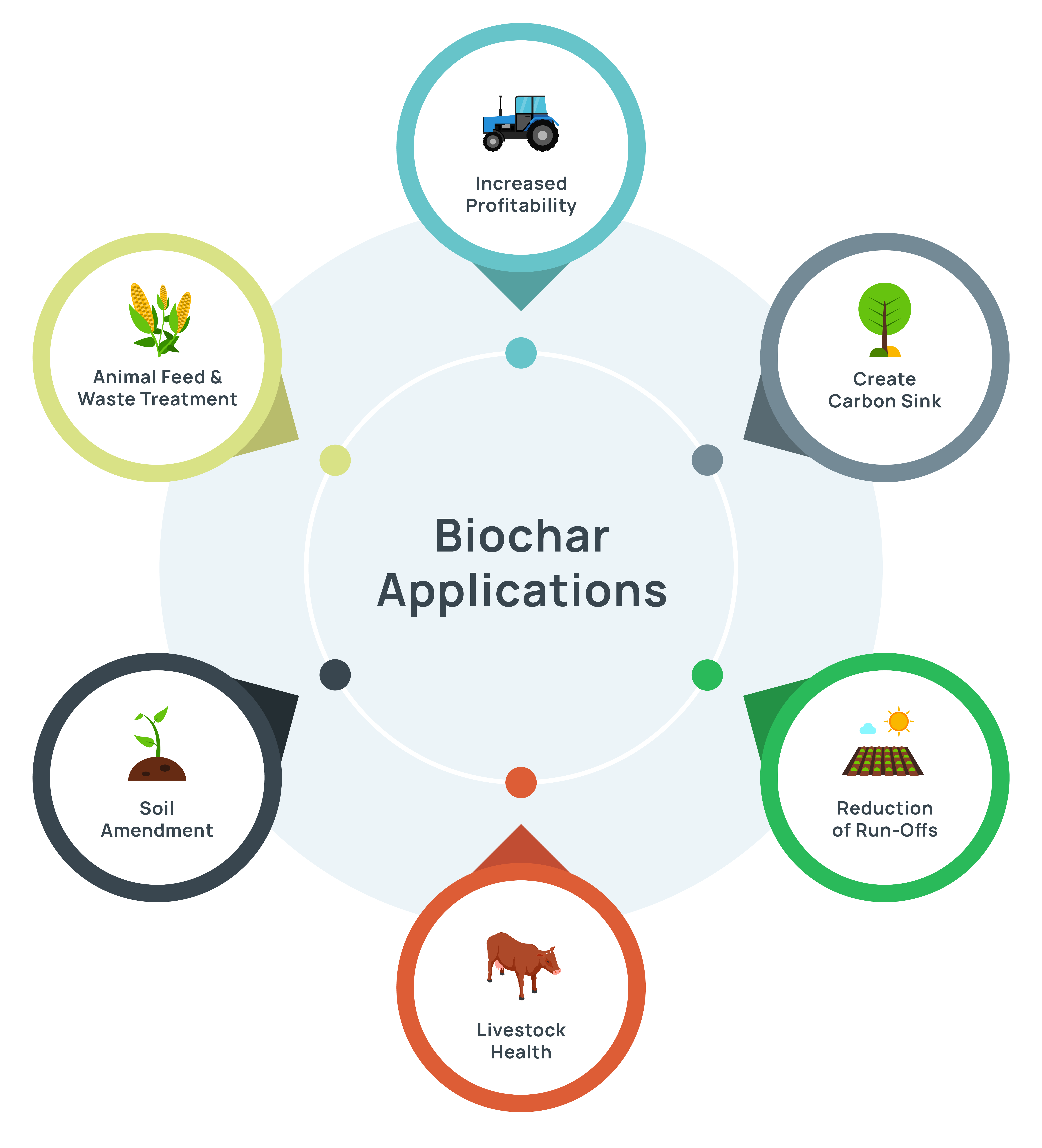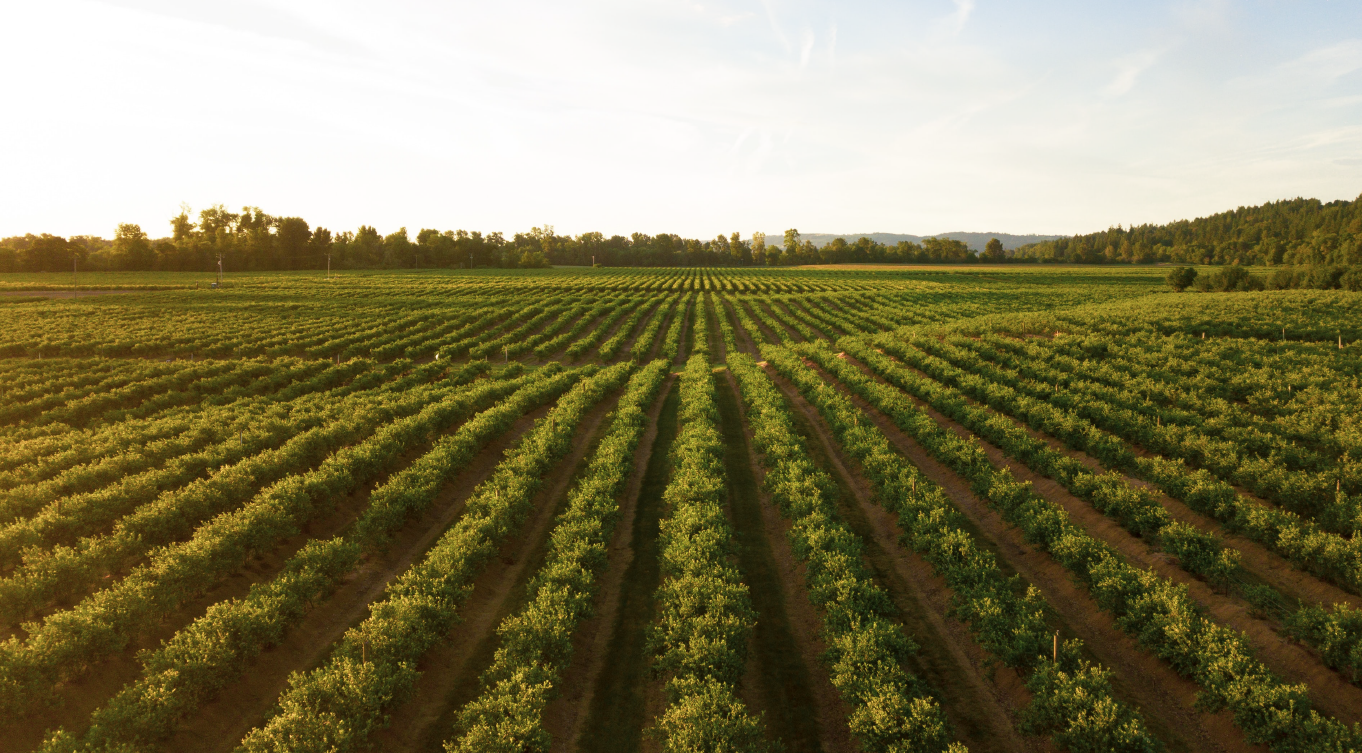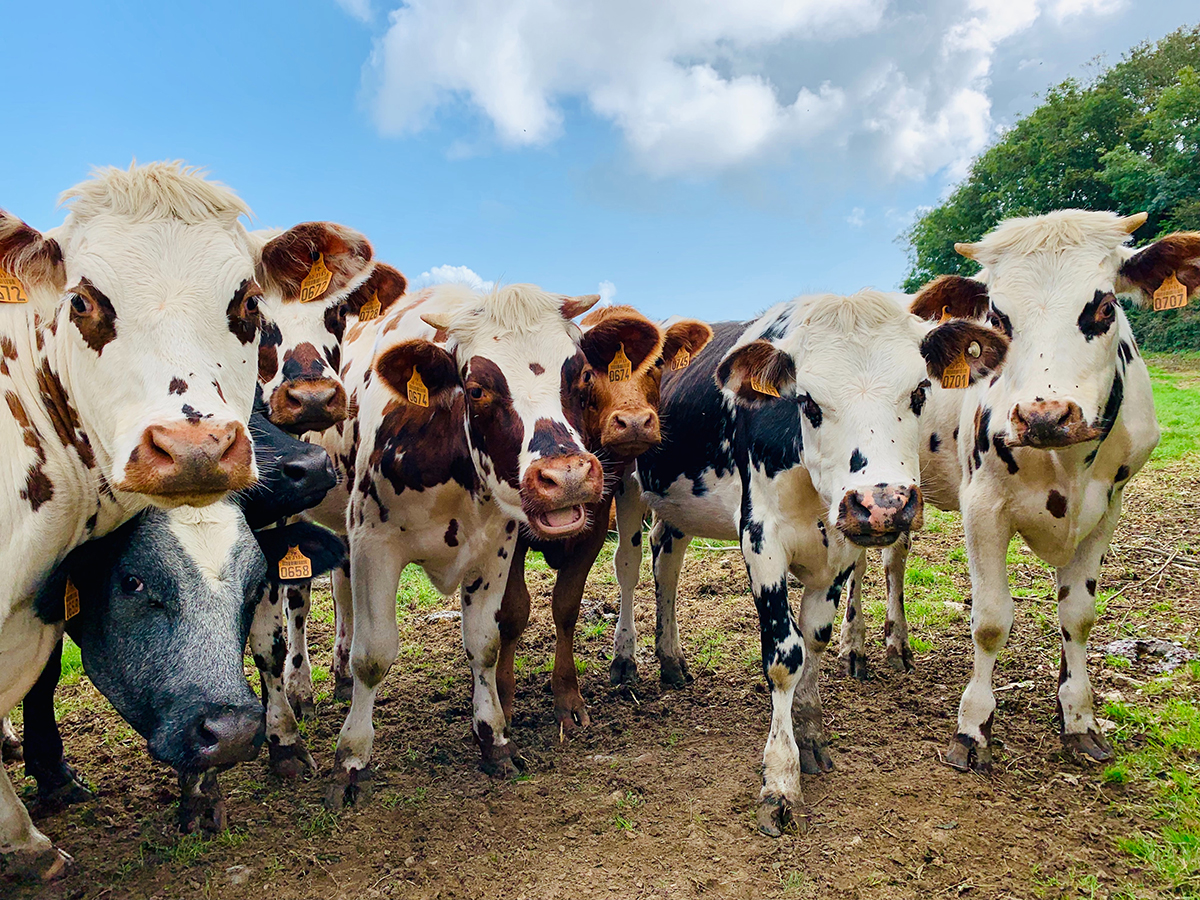Generally, there are two ways to apply biochar meaningful in agriculture, which are generally different:


Biochar Applied Directly in the Soil
Explore the economic and environmental benefits of applying biochar directly in the soil through the Biochar Calculator.
Biochar as Feed Additive
Biochar offers considerable scientifically proven advantages as a feed additive. Numerous studies have shown that biochar reduces direct greenhouse gas emissions from livestock, especially cattle and swine, and improves yields in the breeding and husbandry of all livestock species. The economic benefits to the farmer are primarily in improved animal health, which is reducing the mortality rates, the required vegetarian cost, amounts, and the cost of pharmaceutics.
Maybe this is the most important benefit from an agronomic viewpoint, biochar as feed additive is rewarded by increased weight gain rates of fed animals (swine, cattle and poultry) and by improved meat quality. With respect to cattle, weight gain increases due to biochar as feed additive was between +15% and +25% (in an extreme example even +60%).

For dairy cows, improvements in the milk quality due to biochar as feed additive could be observed (less contamination with aflatoxin, higher concentration of milk fat), in some experiments even an increase of the specific daily milk production (increase by about 11% or 0.33 lbs./d). Explore the possible benefits of your farm by using the calculator.

